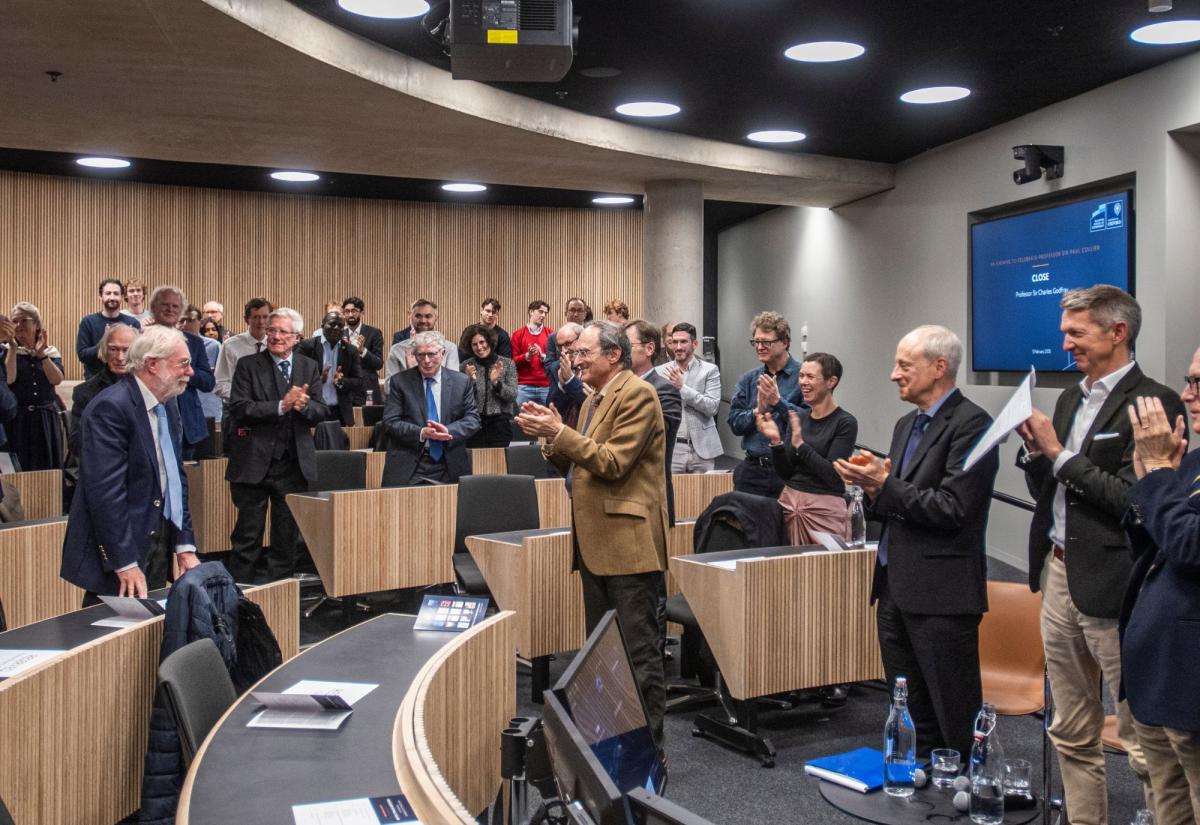
Photo by John Cairns
On 13-14 February, 27 multilateral and bilateral Development Finance Institutions (DFIs) met at the Blavatnik School of Government at the University of Oxford, to discuss how to increase their impact in facilitating more private investment into economies affected by fragility or conflict. The meeting noted that projections suggest that by 2030 these countries will account for about half of the world’s poorest people, underlining the importance of investing in job-creation.
The Forum built on the Escaping the Fragility Trap report released by the LSE-Oxford Commission on State Fragility, Growth and Development, convened by the International Growth Centre, and co-chaired by former UK Prime Minister the Rt Hon David Cameron and former President of the African Development Bank Donald Kaberuka, which had made the case for a stronger role for DFIs in supporting these economies.
The Forum was co-organised by the Blavatnik School of Government, the CDC Group, and the International Finance Corporation. Topics included how to address the practical difficulties of attracting local and international investment, the opportunities for encouraging a more supportive business environment, approaches to reducing perceived risk, the role of concessional finance, the importance of sensitivity to conflict, and ways in which DFIs could work together more effectively.
Both David Cameron and Donald Kaberuka addressed the Forum, as did Minister Nabeela Tunis of Sierra Leone, the Chair of the ‘g7+’ group of countries, whose collective mission is to support its twenty-member nations to develop and become more resilient. Development agencies from France, The Netherlands and the UK, and several investors and businesses operating in fragile economies, also took part.
The multilateral and bilateral institutions agreed the following:
- To create a series of transformational pilot programmes to increase effective collaboration of such institutions in selected countries:
- To work together to identify ways to streamline their processes for investments in the private sector of economies affected by fragility and conflict: and
- To continue their efforts to identify appropriate uses for concessionary capital that can be blended with commercial capital to achieve development impact.
CDC Group, the International Finance Corporation and the African Development Bank, in partnership with the Blavatnik School of Government and the International Growth Centre, have announced that they will convene future annual conferences to share learning and assess their progress in the amount and impact of financing the private sector to combat fragility and conflict.



